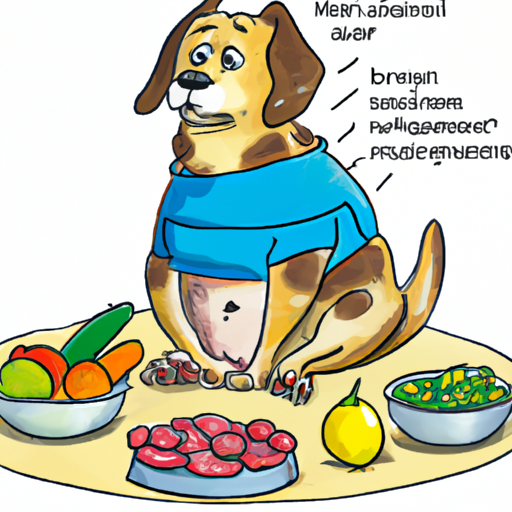As a caregiver to your beloved pet, you may often find yourself wondering how best to ensure their health and comfort. One common issue many dogs face is bloating. Bloating in dogs, also known as gastric dilatation-volvulus (GDV) or “dog bloat”, is a serious condition that can be life-threatening if not treated promptly. In this comprehensive guide, we’ll explore various strategies on how to relieve bloating in dogs.
Key Takeaways
- Understand the causes and symptoms of bloating in dogs
- Learn various home remedies to relieve bloating
- Know when to seek professional veterinary help
Table of Contents
- Understanding Dog Bloat
- Signs and Symptoms of Bloating
- Causes of Bloating in Dogs
- Home Remedies for Dog Bloat
- Preventing Bloating in Dogs
- When to Seek Veterinary Help
- FAQs
Understanding Dog Bloat
Dog bloat is a medical emergency that occurs when a dog’s stomach fills with gas and sometimes rotates, trapping the gas inside. This condition can lead to a host of complications, such as reduced blood flow to the heart, organ damage, and shock, which can be fatal if not treated promptly. According to PetMD, GDV is a leading cause of death for dogs, particularly larger breeds.
Signs and Symptoms of Bloating
It’s crucial to recognize the signs of bloating in your dog to ensure timely treatment. Common symptoms include:
- Distended abdomen
- Non-productive vomiting or retching
- Restlessness
- Drooling
- Rapid shallow breathing
Causes of Bloating in Dogs
Several factors can contribute to bloating in dogs, including:
- Eating too quickly: Dogs that eat their meals too quickly are more likely to swallow air, which can lead to bloating.
- Large meal portions: Overeating can also cause bloating. It’s important to feed your dog appropriate portions based on their size, breed, and activity level.
- Stress: Just like humans, dogs can experience digestive issues due to stress.
Home Remedies for Dog Bloat
Here are some home remedies that can help relieve mild cases of bloating:
- Slow feeder bowls: These bowls are designed to slow down your dog’s eating pace, reducing the likelihood of swallowing air.
- Smaller, frequent meals: Feeding your dog smaller meals more frequently throughout the day can also help prevent bloating.
- Exercise after eating: Light exercise after meals can promote better digestion.
However, keep in mind that these remedies are not meant to replace professional veterinary care, particularly in severe cases.
Preventing Bloating in Dogs
Prevention is the best cure. Here are some tips on how to prevent bloating in dogs:
- Balanced diet: Feed your dog a balanced diet with high-quality dog food. Avoid foods that are high in fat and fermentable carbohydrates.
- Avoid stressful situations: Try to keep your dog calm, particularly around meal times.
- Regular check-ups: Regular veterinary check-ups can help detect potential health issues early on.
Onetopdog has an excellent article on maintaining a healthy diet for your dog, which can be helpful in preventing bloating.
When to Seek Veterinary Help
While home remedies can help with mild cases of bloating, they’re not a substitute for professional veterinary care. If your dog exhibits severe symptoms such as distended abdomen, retching, rapid breathing, or signs of distress, seek immediate veterinary attention.
FAQs
Q: What breeds are most susceptible to bloating?
A: Larger breeds with deep chests, like Great Danes, St. Bernards, and Weimaraners, are more prone to bloating. However, any breed can experience bloating.
Q: Can bloating be prevented in dogs?
A: While not all cases of bloating can be prevented, maintaining a healthy diet, regular exercise, and avoiding stress can significantly reduce the risk.
Q: How is bloating treated in dogs?
A: Treatment for bloating typically involves decompressing the stomach to release trapped gas, and in severe cases, surgery may be necessary.
In conclusion, taking care of a dog’s digestive health is crucial. As a caregiver, understanding the signs, causes, and remedies of bloating can help ensure your pet lives a healthy, comfortable life. For more information on dog care and health, check out these articles on Onetopdog and Onetopdog.



